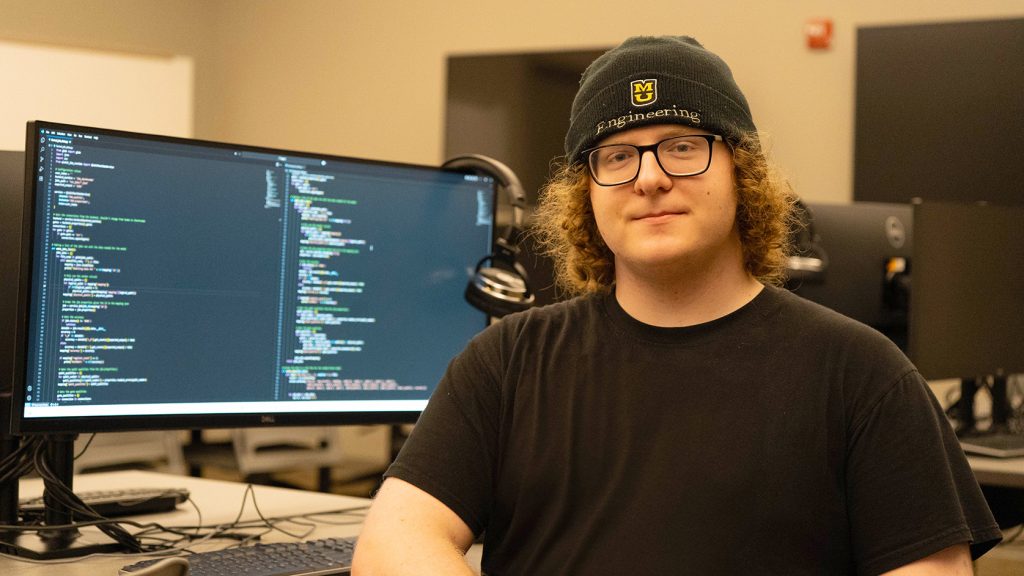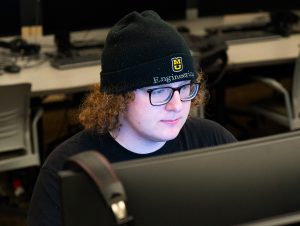
Story and photos by Logan Jackson
- Ashton Wooster – junior computer science and information technology double major
- Mentor: Chi-Ren Shyu, professor of electrical engineering and computer science; director of the MU Institute for Data Science and Informatics
When Ashton Wooster was looking for an internship opportunity last year, he couldn’t find the exact fit he was looking for. That led him to check out what types of undergraduate research opportunities were available to him at Mizzou. Wooster soon found a project that piqued his interest – and has now spent a year conducting research tied to quantum cybersecurity.

“Once I got started with my work, I really got into the project,” said Wooster, a junior computer science and information technology double major. “I definitely think research is something that I want to continue to pursue, especially tied to interesting topics like quantum cybersecurity.”
Wooster’s project began by researching how far he has to space out circuits in a quantum computer before they begin leaking information to each other. That work transitioned into Wooster gathering data and detecting what sort of information he could learn from those circuits, which did identify potential threats. This summer, through the Cherng Summer Scholars program, he is researching ways to mitigate or eliminate those threats.
“A classical computer uses bits and bits work on math,” Wooster said. “So, if we want to add two numbers together, we just add the bits together. Essentially, classical computers use math to solve problems. Quantum computers use qubits and run on different, distinct quantum phenomenon – like superposition – which allows a qubit to be in multiple states at the same time. Entanglement allows us to connect the states of two qubits and that allows us to get exponential computing power growth. They’re not just faster computers, though. We don’t just solve a classical problem faster – we’re solving a completely different problem.”

To conduct his research this summer, Wooster prepares multiple jobs for a quantum computer. To do that, he places two circuits next to each other to measure the accuracy and to see if they leak any information to each other. Wooster is trying to find patterns and stop that leakage of information.
“The end goal is to make quantum computing secure and cheaper for people to use,” Wooster said. “Only one person can use the computer at a time. We want to move toward multi-tenant, which is where multiple people can share the cost. The problem right now is that it’s not secure yet. We’re working on making a sort of quantum antivirus to make them secure without increasing the time it takes to run the computer.”
Wooster said it’s been incredibly rewarding to be able to be at the forefront of quantum cybersecurity research. He’s also enjoyed being part of the Cherng Summer Scholars program. A nine-week research or creative scholarship program for Mizzou students who are pursuing the Honors Certificate, the Cherng Summer Scholars program allows students to participate in individually designed projects under the mentorship of a Mizzou faculty member. The program is supported by a gift from Peggy and Andrew Cherng and the Panda Charitable Foundation.
“From a research perspective, I don’t get to interact with individuals outside of my field that often,” Wooster said. “This program has allowed me to learn more about what type of research my peers are conducting across campus. It’s been really interesting to see how we approach our work.”